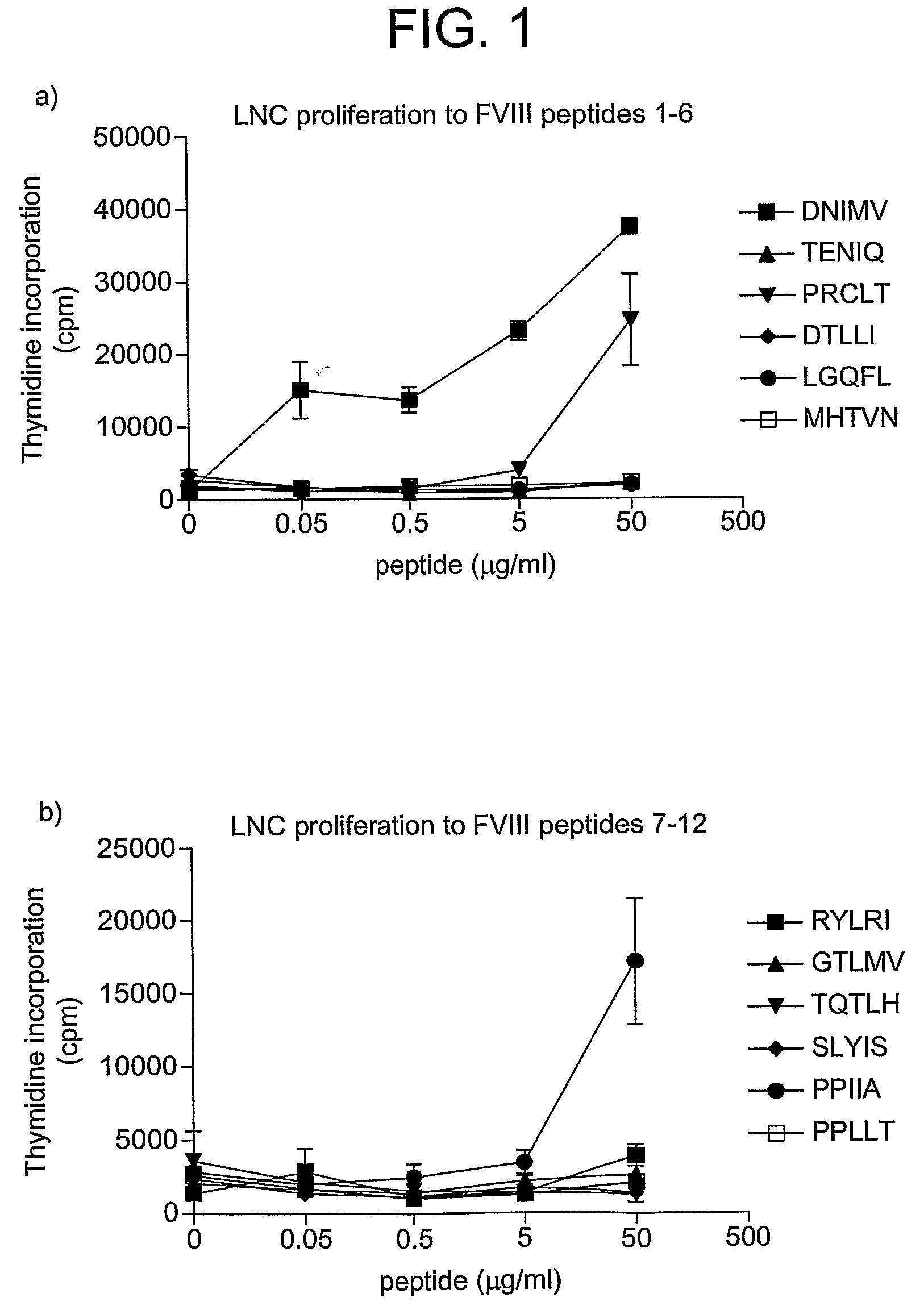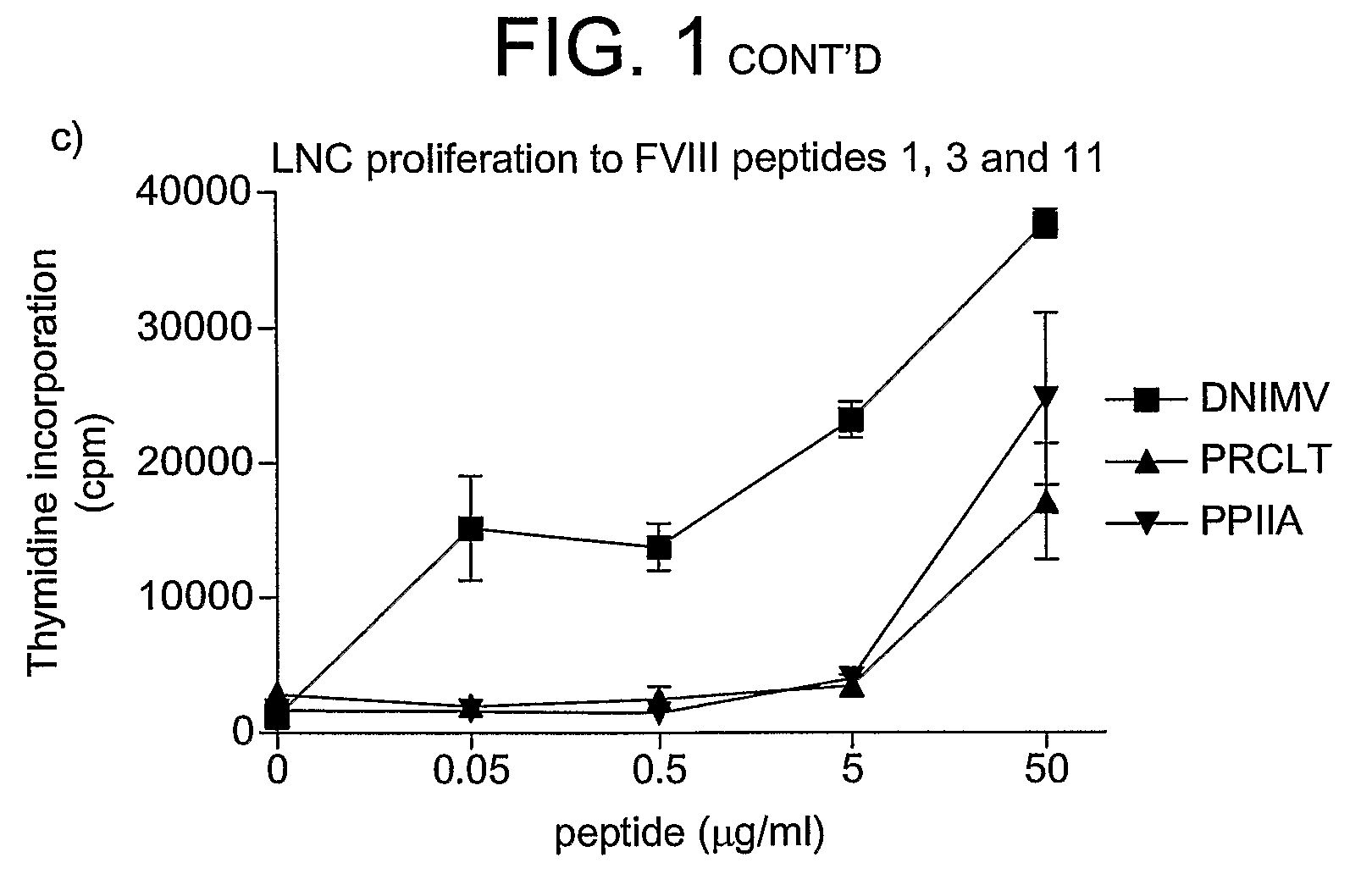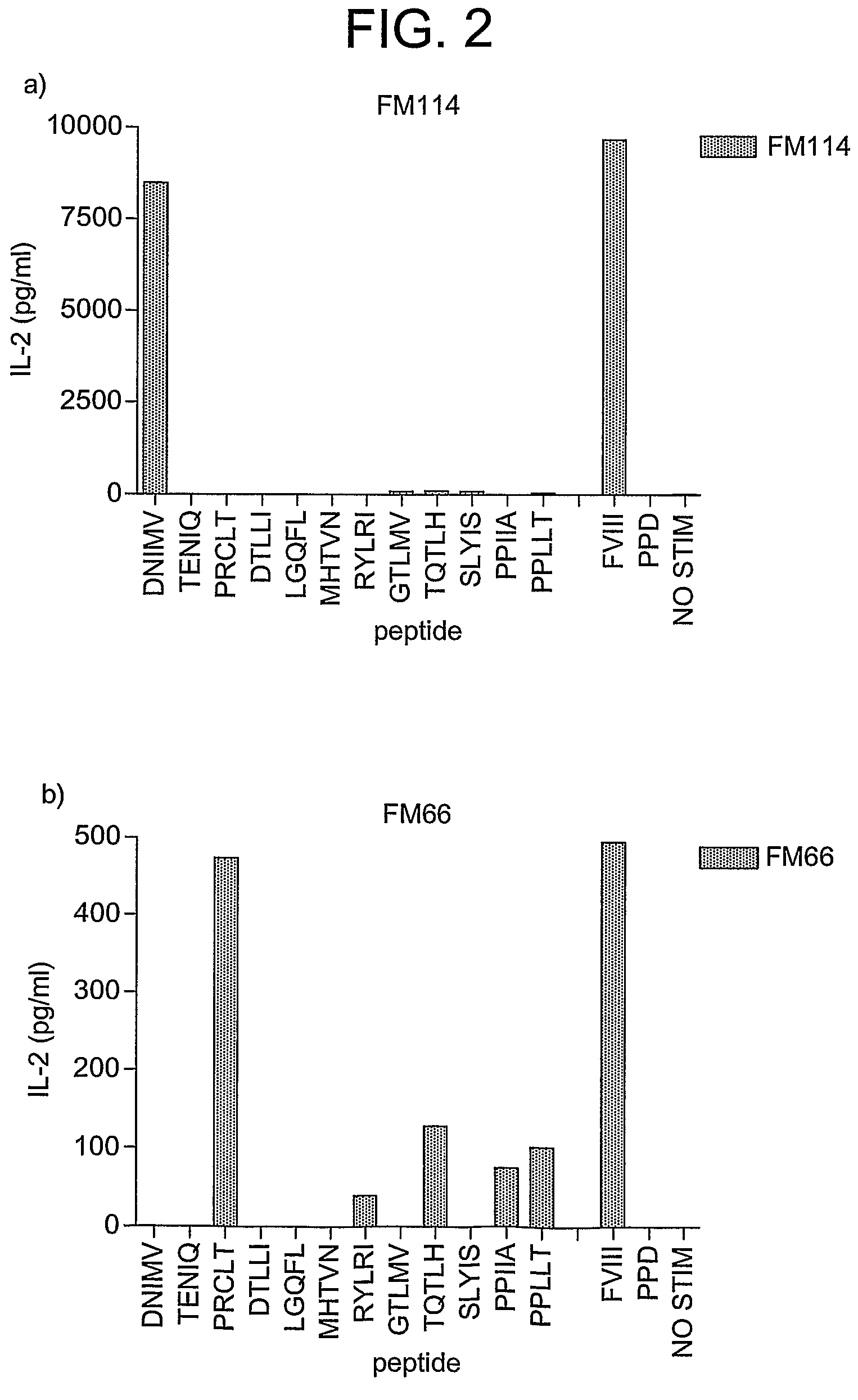FVIII peptides and their use in tolerising haemophiliacs
a technology of peptides and haemophilia, which is applied in the field of peptides, can solve the problems of increased bleeding time, difficult management, internal bleeding into joints, muscles and soft tissues, etc., and achieve the effects of suppressing, reducing or preventing the development of factor viii inhibitor antibodies
- Summary
- Abstract
- Description
- Claims
- Application Information
AI Technical Summary
Benefits of technology
Problems solved by technology
Method used
Image
Examples
example 1
Selection of HLA-DR2 Factor VIII Peptides
[0181]A series of FDVIII 15mer peptides were compared using three HLA-DR binding algorithms:
[0182]SYFPEITHI (syfpeithi.de / home.htm)
[0183]ProPred (imtech.res.in / raghava / propred / ) and
[0184]and IEDB (immuneepitope.org / home.do).
[0185]Peptides were selected which were predicted to be HLA-DR2-binding by more than one of the programmes and flanking sequences were designed for the predicted core residues (table 1).
[0186]
TABLE 1Pep-FVIIISequence intideFirstsingleAlso referred toNoAAamino acid codeherein as:12140GTLMVFFGNVDSSGIGTLMV (SEQ ID NO: 62)20208TQTLHKFILLFAVFDTQTLH (SEQ ID NO: 63)32114SLYISQFIIMYSLDGSLYIS (SEQ ID NO: 64)42161PPIIARYIRLHPTHYPPIIA (SEQ ID NO: 65)52318PPLLTRYLRIHPQSWPPLLT (SEQ ID NO: 66)6 250MHTVNGYVNRSLPGLMHTVN (SEQ ID NO: 67)7 322LGQFLLFCHISSHQHLGQFL (SEQ ID NO: 68)8 478DTLLIIFKNQASRPYDTLLI (SEQ ID NO: 69)9 545PRCLTRYYSSFVNMEPRCLT (SEQ ID NO: 70)10 607TENIQRFLPNPAGVQTENIQ (SEQ ID NO: 71)111788DNIMVTFRNQASRPYDNIMV (SEQ ID NO: 72)...
example 2
Investigating the Response of HLA-DR2 Restricted Cells from Factor VIII Immunised Mice to Peptides
[0187]HLA-DR2 transgenic mice were immunised with human factor VIII in adjuvant. Draining lymph node cells were collected and restimulated in vitro with different concentrations of the 12 peptides from table 1. The results are shown in FIG. 1.
[0188]HLA-DR2 restricted cells from factor VIII immunised mice clearly respond strongly to peptide DNIMV (SEQ ID NO: 72) (1st amino acid 1788). There are also responses to peptides PRCLT (SEQ ID NO: 70) (545) and PPIIA (SEQ ID NO: 65) (2161).
example 3
Investigating the Response of T Cells from HLA-DR2 Mice to Peptides
[0189]HLA-DR2 mice were first immunised with factor VIII in adjuvant. Spleen cells from immune mice were restimulated in vitro with factor VIII and the resulting lymphoblasts were fused with the BW5147 thymoma using polyethylene glycol.
[0190]T-cell hybridomas were selected in HAT medium and the hybridomas cloned and tested for their response to factor VIII. The hybridomas were then screened for their response to the 12 predicted peptides. Of the 27 hybridomas screened, 11 responded to DNIMV (SEQ ID NO:72), 3 to PRCLT (SEQ ID NO:70) and 3 to PPIIA (SEQ ID NO:65), although the response to PPIIA (SEQ ID NO:65) was weaker and less specific. The response of two hybridomas specific for DNIMV (SEQ ID NO:72) and PRCLT (SEQ ID NO:70) is shown in FIG. 2.
PUM
| Property | Measurement | Unit |
|---|---|---|
| concentrations | aaaaa | aaaaa |
| concentrations | aaaaa | aaaaa |
| concentrations | aaaaa | aaaaa |
Abstract
Description
Claims
Application Information
 Login to View More
Login to View More - R&D
- Intellectual Property
- Life Sciences
- Materials
- Tech Scout
- Unparalleled Data Quality
- Higher Quality Content
- 60% Fewer Hallucinations
Browse by: Latest US Patents, China's latest patents, Technical Efficacy Thesaurus, Application Domain, Technology Topic, Popular Technical Reports.
© 2025 PatSnap. All rights reserved.Legal|Privacy policy|Modern Slavery Act Transparency Statement|Sitemap|About US| Contact US: help@patsnap.com



